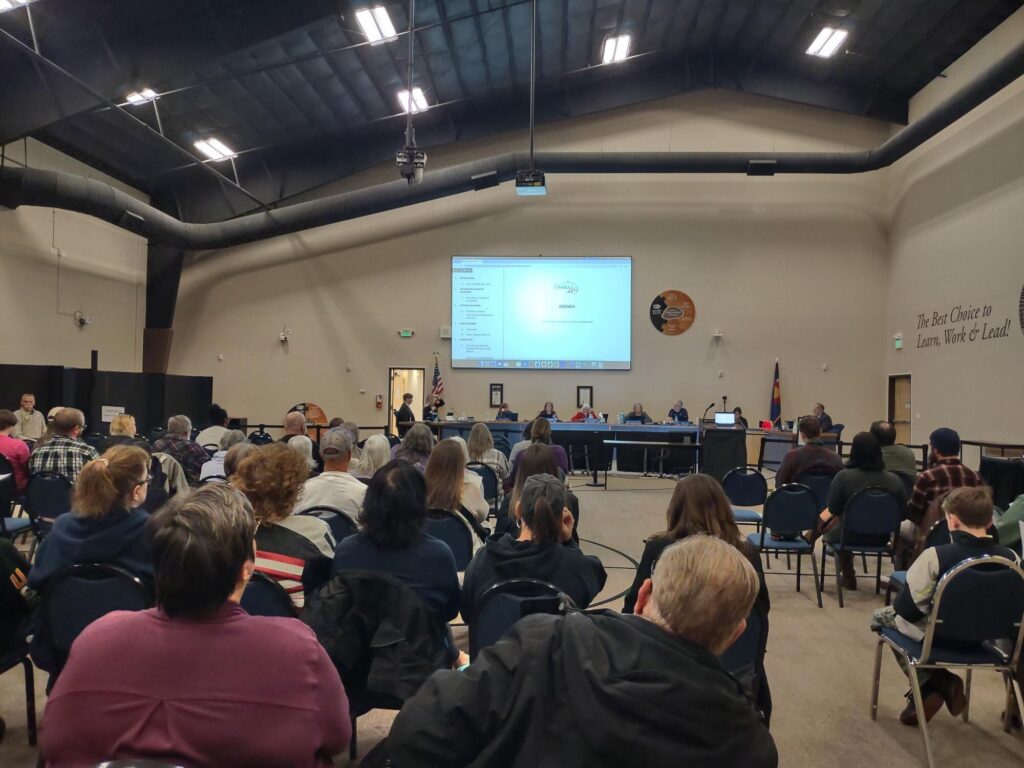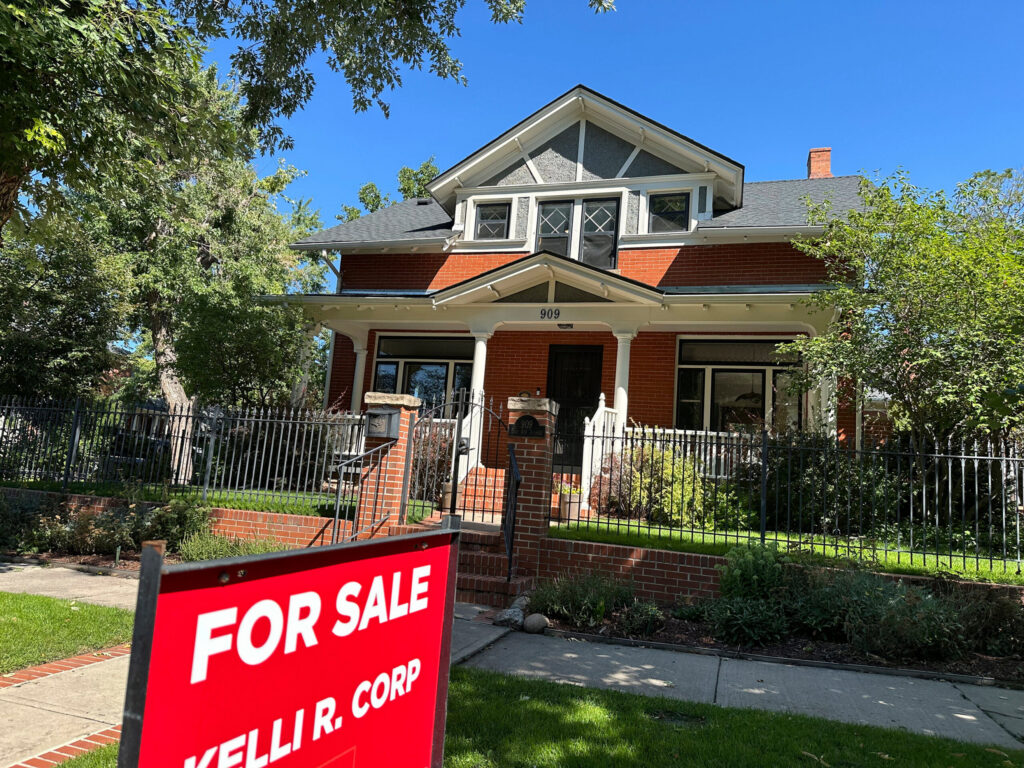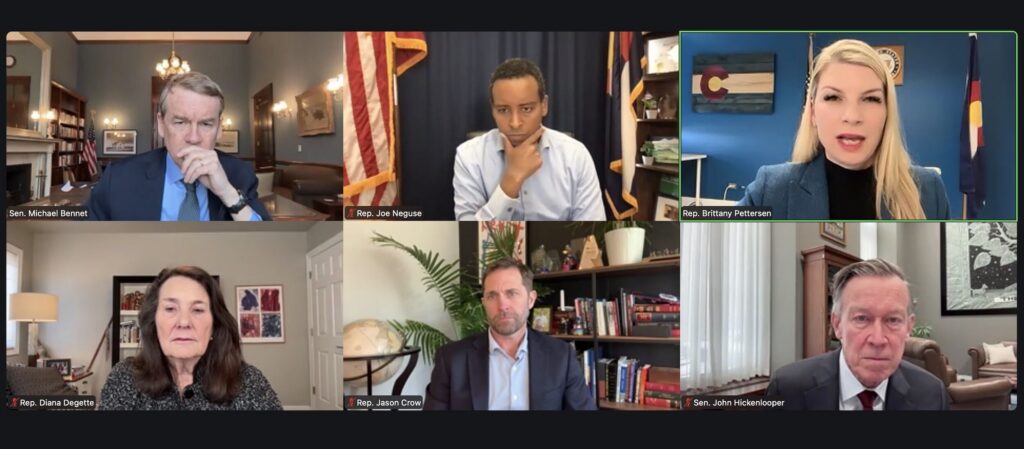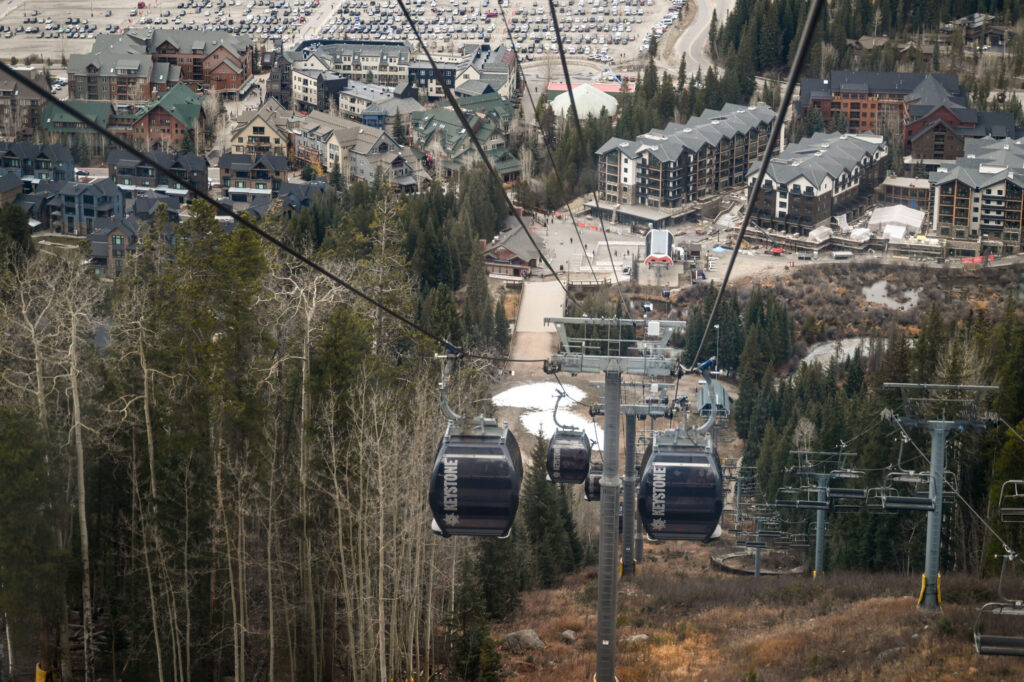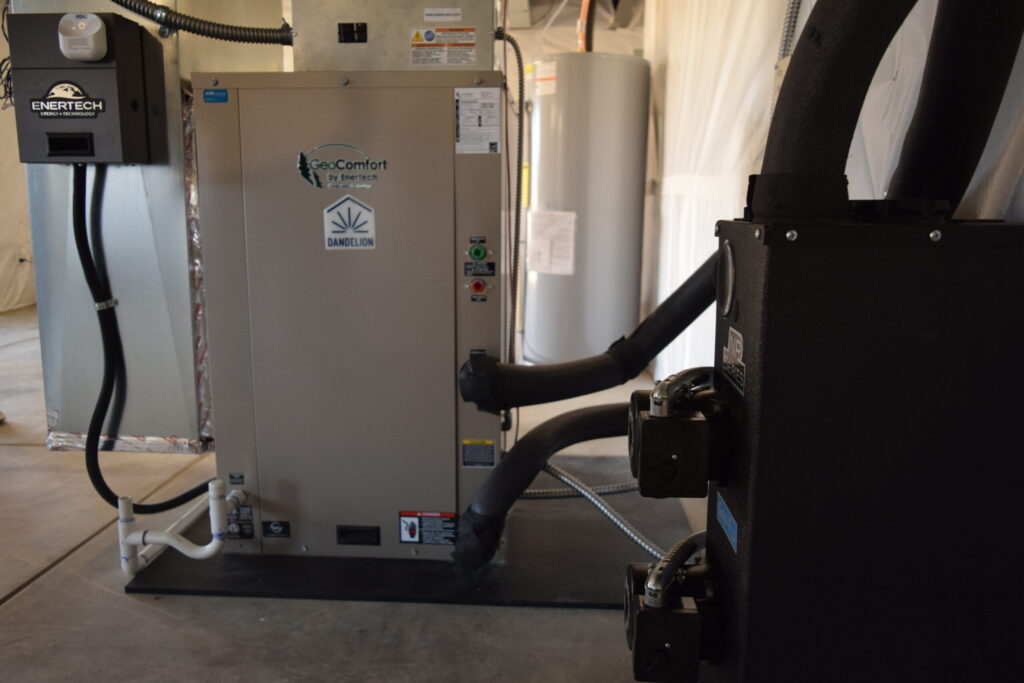State of the State in Colorado Springs: Gov. Jared Polis highlights strides in housing, economy, education

In a localized version of Colorado Gov. Jared Polis’ annual State of the State address, he and officials with the Colorado Springs Chamber & EDC on Thursday afternoon highlighted strides the state has made in housing, education, workforce development and the local economy during the 2023 legislative session.
Speaking to business leaders as well as state and local elected officials who gathered at Weidner Field downtown, Polis and chamber officials reflected on the work state lawmakers did during this year’s 120-day legislative session.
Colorado Chamber of Commerce assesses 2023 legislative session
As governor, Polis gives his annual State of the State address at the state Capitol in Denver before the General Assembly convenes in January. In recent years, Polis has delivered a similar address in Colorado Springs before business and civic leaders, typically shortly after his Denver address. This year, he said, he wanted to recap the work the General Assembly has done during his stop in Colorado Springs.
That work, Polis said, and the work ahead, will allow residents to “reflect who we have been, who we are and who we aspire to be: A state where people can afford to live and thrive. A great state to start a business. A state where our air and water are clean. A state where our schools are the top of the nation and our streets are safe.”
HOUSING
Colorado Springs excels in attracting new residents and recruiting companies to do business in the city, but the high cost of housing and “constraints on supply” make it difficult for people to find affordable and attainable housing here, he said.
In 2020, the average home in Colorado cost $445,000, he said – an increase of more than $100,000 in three years. Costs “might have leveled off a bit in the last year” as interest rates rise, but “how people perceive” housing prices has changed, too.
“A $400,000 home today costs a lot more than a $400,000 home three years ago because of the much significantly higher mortgage rates,” he said.
Entry-level homes, duplexes, quadplexes and accessory dwelling units “tend to be more affordable and are often harder to build,” but developers have “frequently been squeezed out of the most affordable kind of housing inventory,” he said.
“Artificial constraints on supply” mean there aren’t enough homes built to keep up with demand and “big government regulations have forced developers further and further from where we need housing (and have) added costs to building,” Polis said.
Colorado Springs is ahead of many communities by allowing accessory dwelling units, often called “granny flats,” in more areas of the city, he said.
In June 2020, the Colorado Springs City Council approved three measures that will allow more granny flats to be built in single-family home neighborhoods. The ordinances intended to balance the need for families to house elderly family members or bring in additional rental income against concerns residents had about adding more density to neighborhoods.
More work needs to be done on that front statewide, Polis said.
“No single jurisdiction can solve the housing issue on their own because we have regional housing markets,” he said.
To address the housing crisis, Polis this year signed a bill that preempts governments from restricting housing growth and forbids enforcement of future restrictions on housing growth, he said.
Dave Dazlich, vice president of Government Affairs for the Colorado Springs Chamber & EDC, hailed Polis’ veto on a bill that would have allowed local governments to match offers of apartment buildings in hopes they would turn those units into affordable housing.
Polis vetoes bill giving governments ‘right of first refusal’ to buy apartments
The “egregious, first-in-the-nation bill” would have “severely (impacted) the cost of apartments across the state,” Dazlich said, because it would have allowed local governments and third parties to delay selling multifamily units by up to 283 days.
Supporters of that bill said it would be another tool to create affordable housing and prevent the loss of affordable units.
Additionally, Polis signed a bill authorizing the state to transfer $13 million, including $5 million from the state general fund and $8 million from the Housing Development Grant Fund, to the Unused State-Owned Real Property Fund. The bill will encourage local governments to partner with affordable housing developers seeking to build on state-owned land, Dazlich said.
A controversial, wide-ranging proposed land use bill ultimately died in the tail-end of the legislative session, he said, after negotiations did not find a compromise between different Senate and House versions of the bill.
As originally introduced, it would have imposed state mandates and stripped local governments of their authority over land use and zoning. Colorado Springs was one of more than 50 Colorado municipalities that protested the bill.
EDUCATION
In two months the state’s universal free preschool program, signed into law last year, will go into effect, Polis said. It allows 4-year-olds in Colorado to attend preschool at no charge to their parents, saving working families money on child care and freeing up a second parent to return to work sooner, he said.
This year, Polis signed a bill that will provide $1,500 scholarships to graduating seniors in the class of 2024. Recipients can use the funds to attend college or skills academies and apprenticeship programs, he said. More students will now be able to afford to get the skills they need to succeed in business and fill the “talent pipeline” for available jobs, he said.
Legislators also expanded several free certificate programs, such as Care Forward Colorado. The program, established in 2022, provides free short-term training programs at community colleges and technical schools in several health-care related jobs like emergency medical technicians, certified nursing technicians, phlebotomy technicians, medical and dental assistants, and others.
There were other wins for education this year, Dazlich said, such as the renewal of the child care tax credit for another three years. Taxpayers who contribute funds to promote child care will receive an income tax credit equal to 50% of their contribution.
Expressing qualms over some measures, Gov. Jared Polis signs two dozen bills
WORKFORCE DEVELOPMENT AND THE LOCAL ECONOMY
Polis said he was “particularly proud of” the aerospace industry as Colorado has worked to improve its economy. The aerospace sector has grown 30% in Colorado over the last five years, he said, with Colorado Springs at the center.
The governor highlighted four new businesses that recently announced they will expand in Colorado Springs, providing high-paying jobs in the aerospace, semiconductor and national defense industries. Those companies alone will create more than 1,300 jobs in Colorado Springs, Polis said.
They include Entegris, a global supplier of electronic materials for semiconductor makers and other industries; Caliola Engineering, an all-woman-owned communications technology firm that supports the defense industry; Zivaro, an information technology company serving government and national defense partners that will modernize systems serving Space and Command Control programs; and Nooks, which offers classified workspaces and networks for businesses and governmental partners.
Dazlich applauded the failure of a bill that would have required nearly every restaurant or retail business in Colorado to pay its employees “predictability pay” when they are sent home and don’t work their scheduled hours because there wasn’t enough work that day.
Dazlich also hailed Polis’ veto of a bill that would have amended the Urban Renewal Law and updated one of its five exemptions related to agricultural land. Per state law, an urban renewal area can’t contain agricultural land unless that land meets an exception – such as if the land was included in an approved urban renewal plan before June 1, 2010.
New approach to handling abandoned vehicles proves successful: Colorado Springs officials
The failed bill would have specified that the agricultural land could be included in an urban renewal area if it is in an existing urban renewal plan, or if the urban renewal plan was originally approved or modified to include the agricultural land before to June 1, 2010 and the land is still in that same urban renewal plan.
Overall, the future of the Pikes Peak region and Colorado is “bright,” Polis said.
With the help of elected officials, business leaders and residents, “We can move Colorado forward and make sure that our next 150 years are an even more amazing and successful time than our first 150 years,” he said.
Colorado prepares to celebrate its 150th anniversary in 2026.
New memorial commemorates Colorado Springs’ founding, past and future achievements




